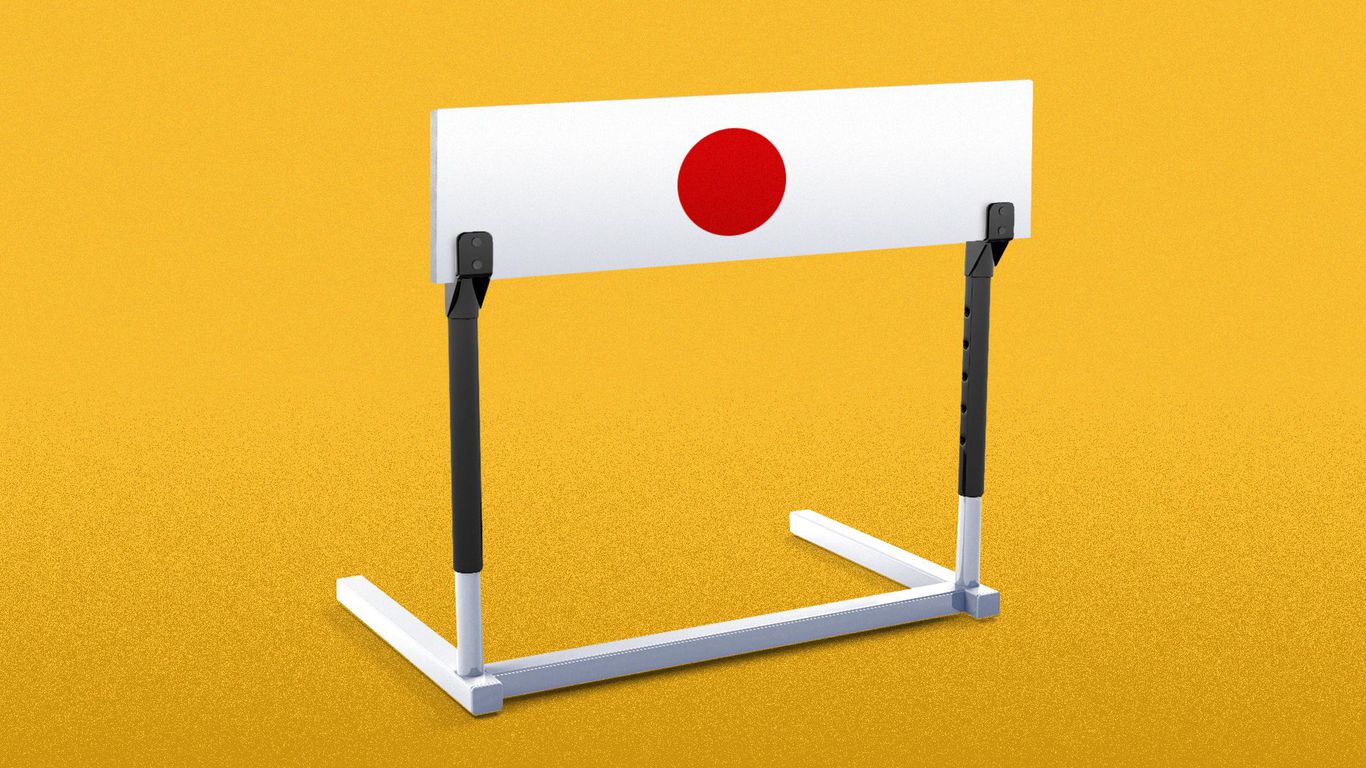Illustration: Allie Carl/Axios
Japan's crypto exchanges have different rules than exchanges in other parts of the world.
Why it matters: FTX Japan, by all reports, didn't come up short on customer funds, and that could be attributed to the more stringent laws in place for how exchanges in Japan operate.
Flashback: In 2018, Japanese crypto exchange Coincheck had hundreds of millions of dollars worth of the NEM cryptocurrency stolen.
The legacy of those consumer losses made it urgent for Japan to create new rules for crypto exchanges, which are more stringent than what most other nations have done, according to the Atlantic Council's Ananya Kumar, a part of the team behind the organization's Crypto Regulation Tracker.
How it works: Kumar highlighted several key rules for such businesses in Japan, which include:
Meanwhile, 95% of all customer funds must be held by the exchanges in cold wallets. That is, wallets not actively connected to the internet.
What they're saying: “What’s brought about the latest scandal isn’t crypto technology itself,” Mamoru Yanase of Japan's Financial Services Agency (FSA) told Bloomberg. “It is loose governance, lax internal controls and the absence of regulation and supervision.”
The other side: Not everyone is enthusiastic about Japan's rules.
By the numbers: About 30 exchanges operate in the country, according to the Financial Services Agency. Some of those may include custodians, however, which are also subject to the rules.
Quick take: Customers may be better protected in Japan, but it's also not exactly a hotbed of competitive crypto companies.
Author
Administraroot

